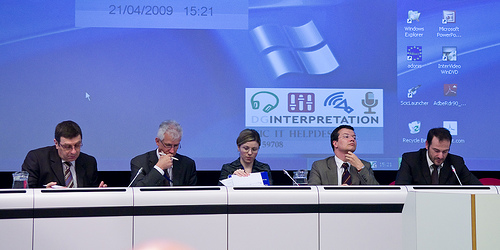The Secret That Once Was The Anti-Counterfeiting Trade Agreement

But, what if the music and video that you downloaded got you kicked off the Internet—permanently? Worse yet, what if you were convicted, not in a court of law but, by your Internet Service Provider (ISP) serving as judge, jury, and executioner? As outlandish as it may sound, such were the concerns of many technologists and digital rights groups when the Anti-Counterfeiting Trade Agreement (ACTA) draft was leaked onto the Internet in March of this year.
The ACTA draft was formed by the collective efforts of numerous countries including the U.S., Australia, Spain, Mexico, as well as Asian countries like South Korea and Japan. Together these nations, as well as others, hoped to establish a universal policy for intellectual property protection to combat the rampant theft of copyrighted content online. Though seemingly harmless in it of itself, what was troubling about the effort was its secrecy. When early drafts were leaked online, it caused widespread panic.
Concerns grew in the tech community of a draconian infringement policy that would, “break the Internet” and kill innovation. CNET editor Molly Wood discussed three specific concerns in her article, “Dear President Obama/ Get ACTA out in the open”, which included:
- ISP liability – The concept of keeping ISPs liable for any possible copyright infringement on their network;
- Anticircumvention – The expansion of the U.S. Digital Millennium Copyright Act—an archaic regulation that forbids consumers from creating a digital backup of media that they purchased—to other nations; and
- Warrantless search and seizure – A provision allowing authorities to search personal computers and seize items under suspicion of infringement.
It’s likely these concepts were discussed with good intentions to protect the copyright holders, but it seemed to be blindly neglectful of the consumers. Not only did these ideas come across illogical, they seemed oppressive of consumers’ civil rights.
Luckily, before these ideas were cemented, the ACTA draft was made public--finally bringing some accountability to the process. Although only invitees were allowed to add to the draft, each successive revision was shared with the public allowing for discussions among the masses. With each new draft, the contributing members attempted to strike a balance for “online service providers while preserving the legitimate interests of right holders.”
Now on the 11th and final draft, the agreement has been polished much to the delight of former critics. Some notable changes in the new draft are the exclusion of the three strikes concept by which ISPs were liable to police the data being transferred and the inclusion of a civil procedure for right holders to demand information about accused infringers from the ISPs.
With the ACTA draft primed and ready, it seems that it will be expedited for ratification. And soon, we as a community will have to unlearn our bad habits of sampling from the online black market.
For more details of the final ACTA draft, click here for the full copy.
To reach reporter Jacob Chung, click here.



